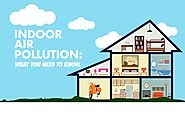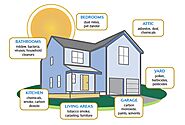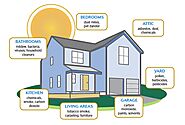-
About
- About Listly
- Community & Support
- Howto
- Chrome Extension
- Bookmarklet
- WordPress Plugin
- Listly Premium
- Privacy
- Terms
- DMCA Copyright
- © 2010-2024 Boomy Labs


Listly by zdrick0033
In today's fast-paced world, where we spend the majority of our time indoors, the quality of the air we breathe can significantly impact our health and well-being. From allergens and pollutants to humidity levels and ventilation, indoor air quality (IAQ) and A/C Installation & Replacement Services plays a crucial role in maintaining a comfortable and healthy living environment. To delve deeper into this topic, we've sought the expertise of HVAC professionals to provide valuable insights into the importance of IAQ and how it can be effectively managed.
Source: https://flowhomeservices.com/

Indoor air quality refers to the cleanliness and purity of the air within buildings, including homes, offices, schools, and other indoor spaces. It encompasses various factors such as the presence of airborne pollutants, dust, allergens, volatile organic compounds (VOCs), humidity levels, and ventilation.

Heating, ventilation, and air conditioning (HVAC) systems play a crucial role in maintaining optimal indoor air quality. These systems are designed to regulate temperature, control humidity levels, and circulate air throughout indoor spaces. However, without proper maintenance and attention, HVAC systems can become sources of indoor air pollution themselves.

Dust and Allergens: Dust mites, pollen, pet dander, and other airborne particles can trigger allergies and respiratory issues, particularly in individuals with sensitivities.
Volatile Organic Compounds (VOCs): VOCs are chemicals emitted from various household products such as paints, cleaning agents, furniture, and carpets. Prolonged exposure to VOCs can cause irritation, headaches, and long-term health effects.

Mold and Mildew: Damp indoor environments provide ideal conditions for mold and mildew growth, which can release spores and mycotoxins into the air, leading to respiratory problems and allergic reactions.
Carbon Monoxide (CO): Colorless and odorless, carbon monoxide is a deadly gas produced by malfunctioning heating systems, stoves, and other combustion appliances. Proper ventilation and carbon monoxide detectors are essential for preventing CO poisoning.

Regular HVAC Maintenance: Schedule routine maintenance for your HVAC system, including filter replacements, duct cleaning, and professional inspections.
Air Filtration: Invest in high-quality air filters that capture and remove airborne particles and allergens from the air.
Proper Ventilation: Ensure adequate ventilation throughout your home or building to promote air circulation and prevent stagnant air.